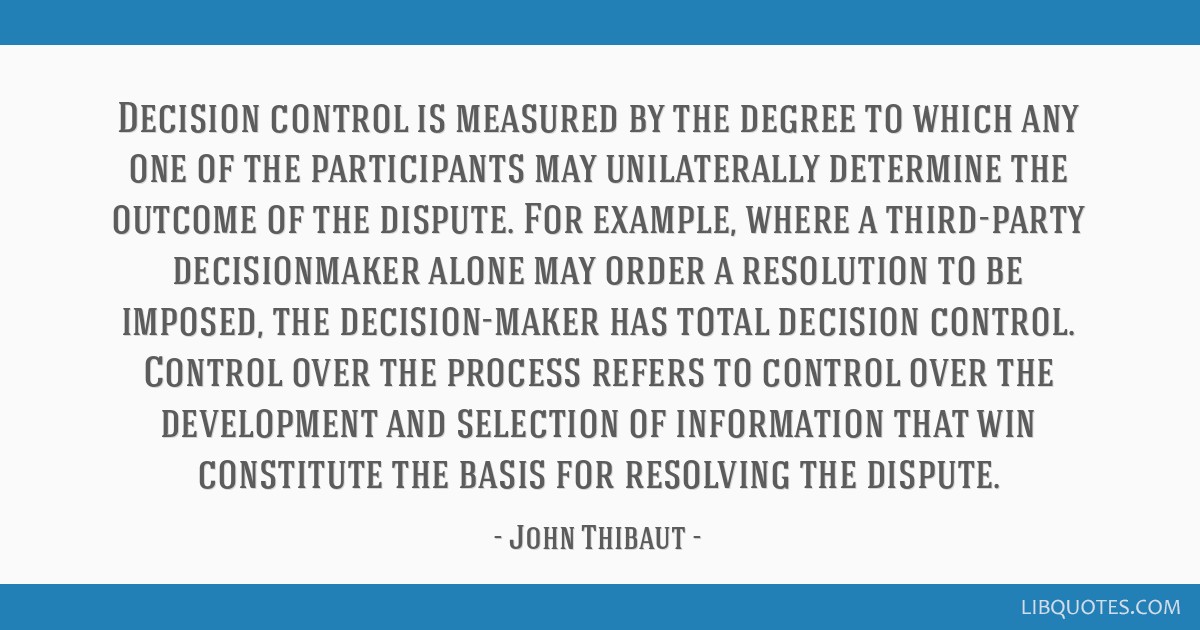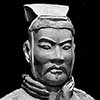Decision control is measured by the degree to which any one of the participants may unilaterally determine the outcome of the dispute. For example, where a third-party decisionmaker alone may order a resolution to be imposed, the decision-maker has total decision control. Control over the process refers to control over the development and selection of information that win constitute the basis for resolving the dispute.
p. 546 - "A theory of procedure." 1978























